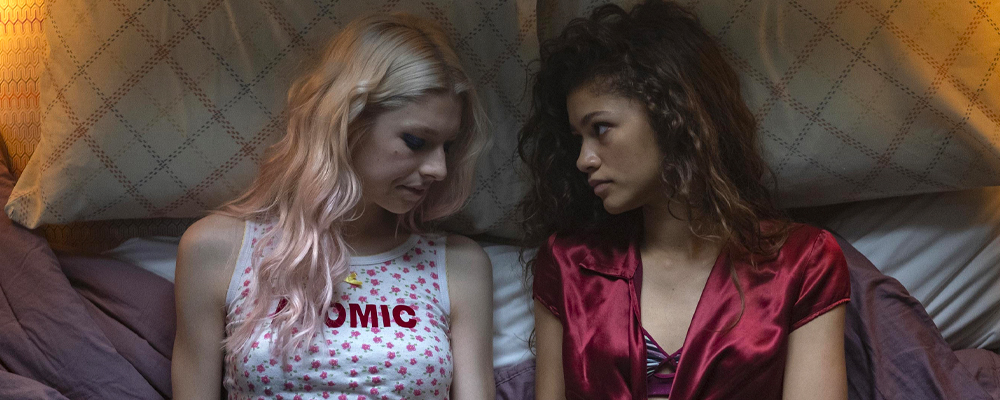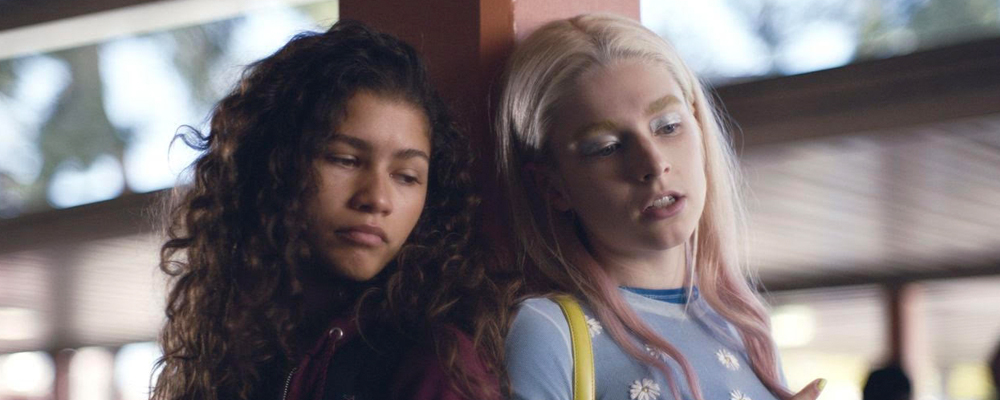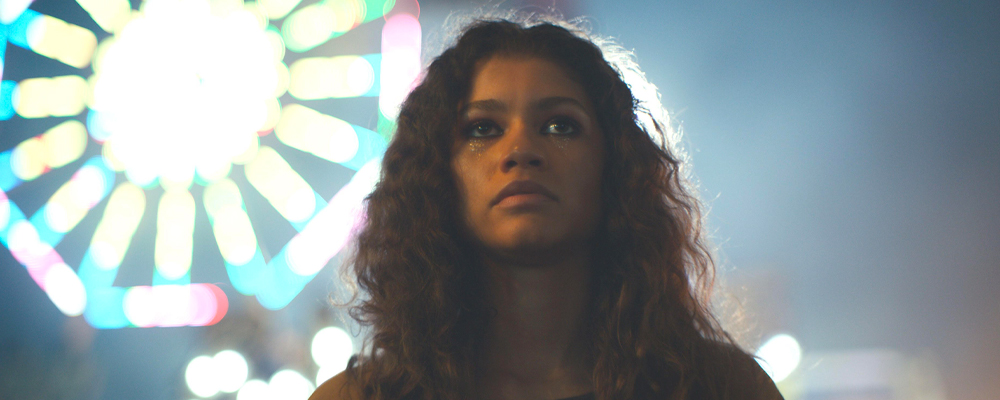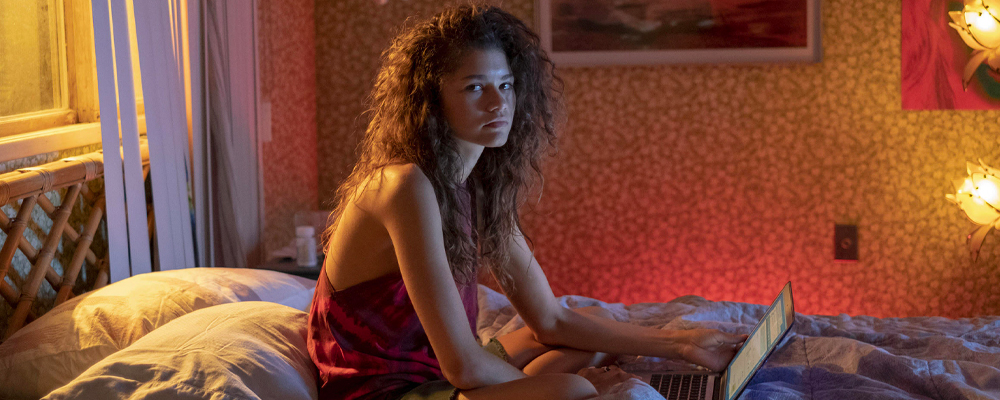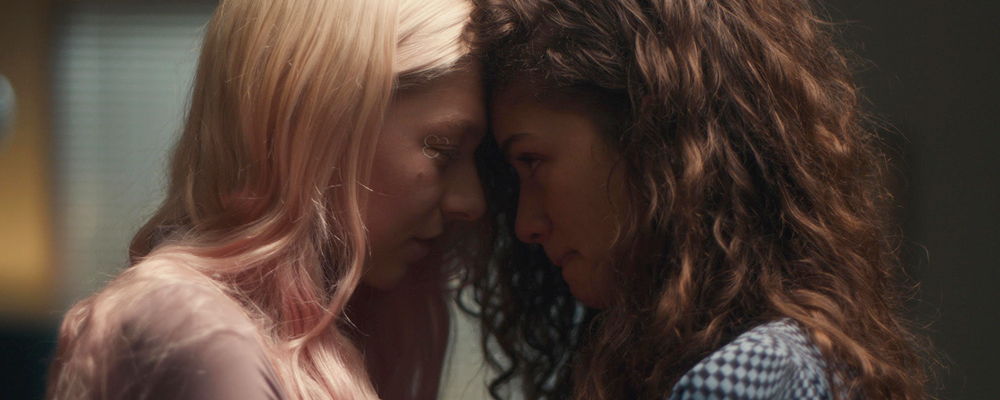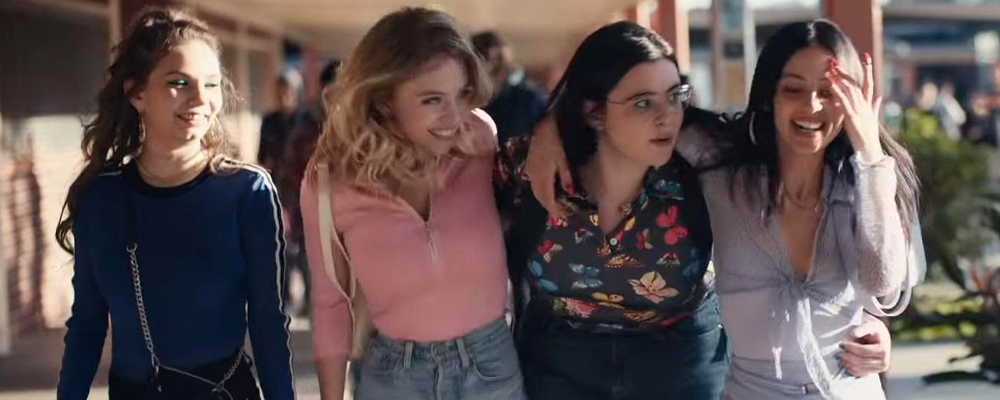‘Euphoria’: The Kids Are Not Alright in HBO’s Feverishly Provocative Teen Series
Alci Rengifo
Full of raging hormones, deep feelings and bursting energy, HBO’s “Euphoria” captures the contemporary Gen Z teen experience like nothing else on television. It is a panorama both unflinching yet empathetic. We all know that it’s not easy growing up, and those unforgiving teenage years can leave their everlasting battle scars. This is a feverish TV debut for director/producer Sam Levinson, who satirized the times without restraint in last year’s underrated “Assassination Nation.” With “Euphoria” some may find its breakneck pacing and sensuous colors distracting, yet they perfectly capture this generation as it lives now, absorbed by social media and feeling marooned. If the episodes can feel disorienting it’s because that is the world right now.
In neon-lit suburbia wanders Rue Bennett (Zendaya), high schooler and recovering drug user. Born three days after 9/11, Rue is part of that generation coming of age full of anxiety, overshadowed by technology and living with a new form of abandonment. Managing to stay sober for just a few days at a time, Rue keeps falling back into her destructive habits. But everyone else in her orbit are also going through major experiences and life transitions. Jules (Hunter Schafer), who has just transitioned to female, is new to town and makes a memorably angst-ridden first impression at a party thrown by jock Nate (Jacob Elordi). Nate is having his own complicated, possessive relationship with cheerleader Maddy (Alexa Demie). College freshman McKay (Algee Smith) also doesn’t know what to make of his relationship with high schooler Cassie (Sydney Sweeney), who interests him, even after her nude pics are shared around by the other guys, but he can’t quite call her his girlfriend. Meanwhile Kat (Barbie Ferreira), plus-size and exploring her sexuality, taps into the world of digital eroticism, discovering it can also be lucrative.
Also producing “Euphoria” are Drake and Future, who no doubt had a hand in the show’s pulsating soundtrack, where rap and pop become the driving soundscape of decadent suburbia. The texture of the show combined with the impressive and young cast make “Euphoria” something more than your average teenage drama. Levinson brings his own eye to a particular style of filmmaking pioneered by directors like Larry Clark in the 90s with challenging, unnerving films like “Kids.” Like an artistic anthropologist, “Euphoria” observes the modern-day high schooler without censoring anything. Levinson, who directs three of the inaugural season’s eight episodes, isn’t judging his characters instead he’s smashing the typical, watered-down shows we get about being young. He’s dramatizing how teenagers can be damaged or smart but too impulsive. We are unknowingly shaped by surroundings. Levinson is also a provocateur, lingering on parties where debauchery stalks every corner, with hallucinatory moments where Rue takes a drug and seems to walk on walls. The guys in particular are horn dogs, looking for any opening to get into a girl’s pants. But the girls are also allowed to be portrayed as sexual beings. Kat loses her virginity by easing herself into a guessing game with some stoned out guys at a party. Jules has a terrible hook up in a hotel with a man who turns out to be Nate’s father, Cal (Eric Dane).
What Levinson does impressively is use these moments not as exploitation, but as threads leading to wider, deeper themes. In the pilot Nate has a meltdown when he sees Maddy have sex with some random party goer in a pool, even though they’re not a couple anymore. But Levinson will then open the second episode of the season with a rundown of Nate’s life, growing up with an overbearing father like Cal, who promotes toxic masculinity like some fascist manual. We learn that Nate found his father’s collection of violent pornography starring himself, thus possibly forever affecting Nate’s own views and attitudes towards women. In the third episode Jule’s horrifying experience involving a mother who forcibly put her in a mental institution is revealed, connecting to her own trust issues and low self-esteem. All generations experience collective dreads in growing up, but Levinson frames these lives in the context of this moment in history. Kat discovers a new self-worth by offering sex services via the internet, leading to a rather darkly hilarious scene involving a client ashamed of his small penis. But before this Kat had to experience the humiliation of not realizing her first sexual experience was filmed and then spread amongst classmates. McKay’s view of Cassie is also shaped by her reputation of being easily talked into taking nudes. She’s smart and actually very sweet, but is learning about how giving too much of your body’s autonomy ends up objectifying you. Rue’s continuous voice over, describing all these events like a journal, emphasizes the way a generation with ready access to porn has unconsciously shaped how it sees each other physically. There has been much online chatter about how there is much male frontal nudity in certain scenes, there’s even a rather brilliant flashback of Nate experiencing gym locker room life for the first time, conscious of seeing everyone else’s nether regions. But think about how many times women are objectified in media. The series is simply being fair in openly portraying sex.
Rue is the heart of the show. She’s the searcher wandering amid all these tumbling lives. Her mother loves her, but is pushed to the limit by Rue having the constant need to escape and explore, sometimes finding solace again in narcotics. It nearly killed her once, as we learn through flashbacks of the time she overdosed, found by her sister lying on the floor of her room. She begins to develop a bond with Jules, and then later a sudden kiss occurs, and it becomes evident the friendship is planting stronger feelings. And while Rue may be the more observant, even mature character, even she puts herself in dangerous situations, like crashing a meeting between her dealer Fezco (Angus Cloud), and a predatory drug runner who forces her to try a potent drug.
Levinson interprets this world through an exhilarating style. One of the season’s great episodes is its fourth one, where all the main characters find themselves at a local amusement park and under the dreamy ambiance of Ferris wheels and carousels, secrets are shared and jealousies explode. But while the style is bombastic, with grandiose zooms and rapid editing, it’s never cheesy. Levinson is merely emphasizing the very powerful feelings of being young and sometimes vapid.
Not all teenagers are like the ones in “Euphoria” of course, but this is a show that taps into how at least many of them are baring their crosses. Consider that this is a generation going through all the harsh lessons, sexual awakenings and self-doubts, but in a time where all of it can be plastered on someone’s timeline.
“Euphoria” season one premieres June 16 and airs Sundays at 10 p.m. ET on HBO.

